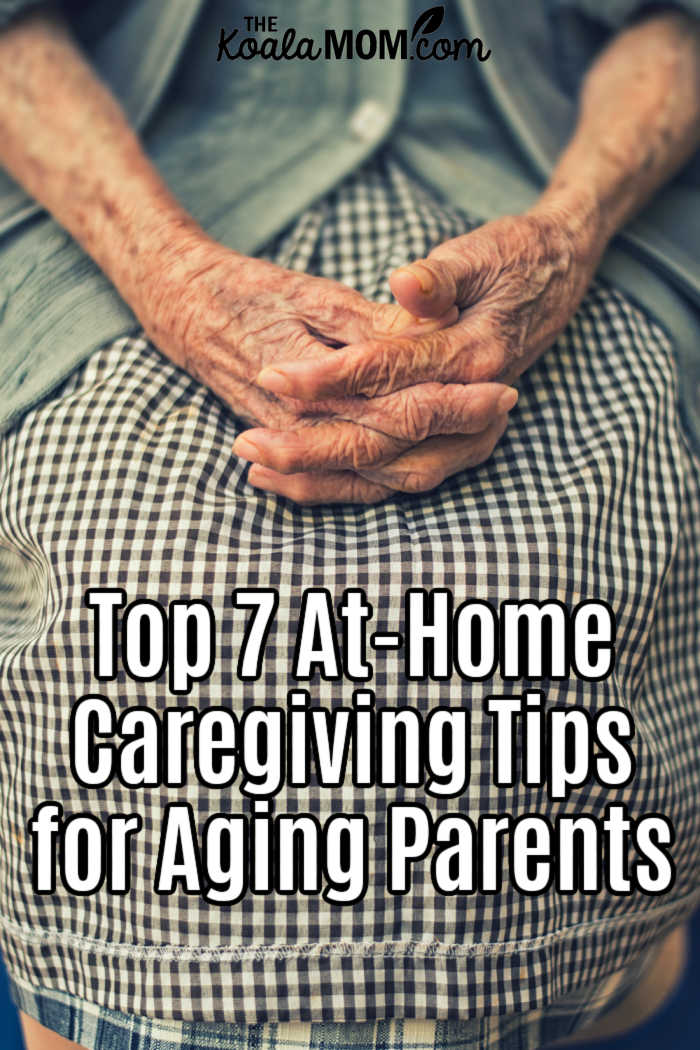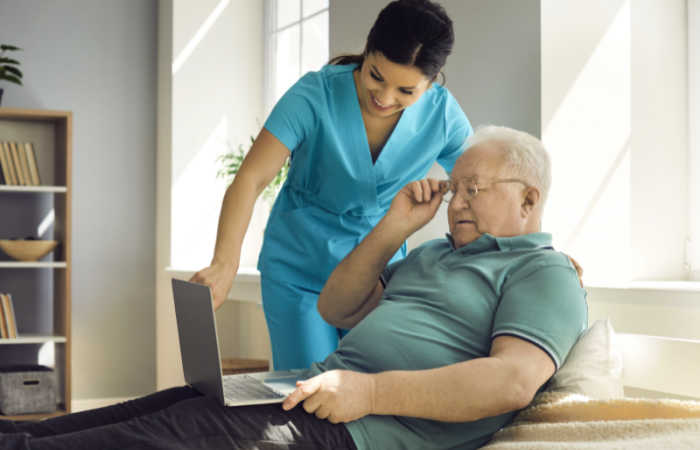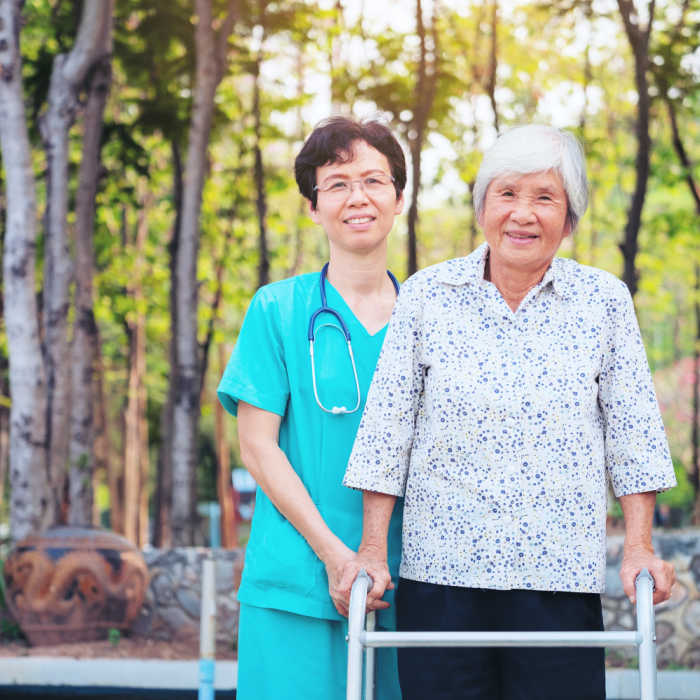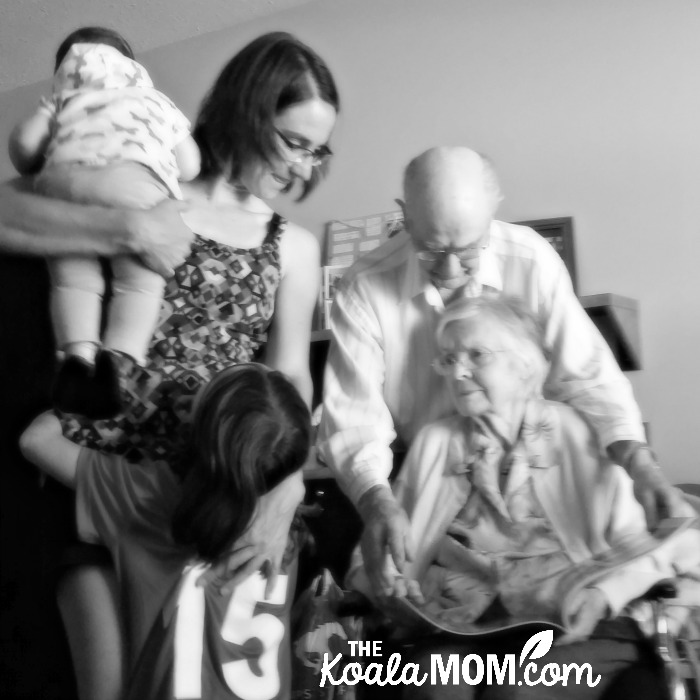Taking care of aging parents at home is a wonderful experience both for the elderly and those involved in caring for them. It’s necessary to note that providing care for aging parents or grandparents can also be tough and stressful at times. Caregivers are at risk of burnout and stress-related medical conditions.
My grandfather was the at-home caregiver for my grandmother for many years. I always wished I could contribute to more of her care, but we moved to BC just before her dementia began to worsen and she required more care. My aunt and uncle were close enough to provide help with some of Grandma’s care and Grandpa’s appointments during that time. I’ve had other friends who were blessed to have their grandma live with them, and I’ve always thought it a beautiful situation—despite the struggles that also come with it.
It’s advisable that if you’re taking care of your parents or grandparents to take a break and rest. Make sure you are getting adequate self-care to be a caregiver. You can ask for assistance from your other family members in providing time and attention to your senior loved ones so that you remain healthy. You can also try finding companion care near you for days when you need a break.
Here are some tips that will help in taking care of aging parents at home for as long as possible with reduced workload and minimized stress.

Know How Much Care Is Needed
It’s possible to focus on the various tasks to undertake as a caregiver and miss out on the exact care you should give.
To free yourself from such, make a list of daily, weekly, and monthly care tasks. This will help to know how much care is needed during the day, at night, and on weekends. Jotting down some notes every time you or another person attends to the older person will help to come up with a comprehensive list of responsibilities. In the process, you’ll also be able to see what needs to be done and keep track of crucial information.
If your elderly loved one is dealing with Alzheimer’s, dementia, or other medical issues, then they will need more care. Their care will also increase as their disease progresses or as they age, so you may want to look ahead at what you will be able to do down the road.
You should also be aware of your other responsibilities. Do you also have young children at home who need your attention? Are you working part-time outside the home? Do you have volunteer commitments? Look at these responsibilities and commitments as well as the care your parent or grandparent needs. Make a second list of all these duties to compare with the list of care required by your elderly loved one.
Be Realistic About The Care You Can Provide
You need to be consciously aware of how much you can do in terms of providing care to your older parent without assistance. If there are tasks you’re certain you’ll not be able to handle, talk about them openly with your parent (or other family members who can help with care, such as your spouse or siblings). Doing this will help you not risk sacrificing your health and relationships among other responsibilities.
Be clear about the tasks you can comfortably and successfully do and those that you’ll need help with in order to avoid burnout or compromising the quality of care you can give.
Get Outside Help
When you’re unsure that you can give the best possible care for your aging parent, get the help you can comfortably afford. You could opt to enroll your parent in an adult day program where they can socialize with their peers outside the home. While they’re away, you can get to rest.

You can also hire a caregiver to help around the house daily or source a volunteer senior companion to visit and take your parent outdoors. If your siblings live nearby, perhaps they can come by at certain times of the week to help with certain tasks.
There are also some aspects of their health that you’ll need professional help with, says this dentist who does the best dental implants in Newmarket. For one, their dental health deteriorates naturally as they grow older, so finding a dentist for them is crucial to keep their teeth as healthy as possible. If dementia has affected your parent’s ability to talk, then they can’t tell you that their teeth or gums are hurting, so regular checkups are a must.
Caregivers take the brunt of their loved ones emotional state. I’m blessed to have help caring for Gram, to have a husband and mother who remind me not to take it personally, to take that emotional step back and love her in those moments where she reminds me more of a tantruming child who is trying to push my buttons than my beloved grandmother. ~ author Colleen Pressprich on “Dementia Care“
Provide Easy, Ready Meals
Most older persons are believed to be at risk of malnutrition because of lack of appetite, depression, and anxiety, among many other factors. It can be a lot of work to shop and prepare meals yourself while also caring for your parent. Another option is to look for affordable yet healthy meal services in your area. This way you’ll have readily available prepared food items to ensure that your parent and other family members don’t skip meals and their nutritional needs are met daily.
Share The Responsibility Of Caregiving
It’s very much in order to ask a family member or friend to help you take care of your parent. This can be done in various ways like taking turns with your other siblings and other close relatives in caring for your parent at home. It may not be a perfect outright solution but it may help you take some time away to rest and come back reenergized more than ever.

Another idea is to invite a family who doesn’t have grandparents nearby to “share” your elderly loved one. Our grandparents live in Alberta while we live in BC. When we lived in Victoria, several grandmas in the parish offered childcare on one morning a week so the moms could have tea and chat together. My daughters loves their adopted grandmas at church. I’ve often wondered if there’s a way we could “adopt” a local senior who perhaps doesn’t have any grandchildren in the area, so we could both benefit from the relationship.
It takes a village. Caring for anyone, no matter their age, takes a village. Adding elder care to the mix of caring for kids makes this even more important. It’s incredibly important to have people you can rely on to give you breaks and to whom you can vent. We are blessed to have a large village, but the person we rely on the most with regards to Gram (and most areas of our lives) is my Mom. Mom lives just down the street from us, and is always available to pitch in. She keeps me sane and splits some of the Gram responsibilities with us. ~ Colleen, “Elder Care“
Cut Down On Financial Pressure
It can be costly to take care of an older person, so it’s important to find financial support long before it becomes a burden. You can look for government and private benefits programs to help you cover some of the costs of at-home elderly care. Also, you can look for reduced costs for prescription medications for ailing parents via non-profits. Other family members who may be unable to physically offer help can possibly offer financial help with care.
Take Care Of Yourself
Put yourself first before taking care of others. As the old airline analogy goes, you need to put on your own air mask before you can help those around you. Ensure to eat well, drink a lot of water, get enough good quality sleep, and exercise whenever you can. It’s also important to ask for help and get a break when you need it. Self-care can be hard to do as a caregiver, when you are used to caring for those around you, but remember that you will be able to care for them better if you also take care of yourself.

Take Home
Taking care of older persons, especially your parents, is a very fulfilling task. It brings the feeling of giving back to them after raising and taking care of you until you could stand on your own two feet. It can also be very hard and stressful if you don’t have the right support systems in place. Consider the tips discussed here to make the experience worthwhile.
Have you cared for a parent or grandparent at home? What tips would you share?


No Responses Yet